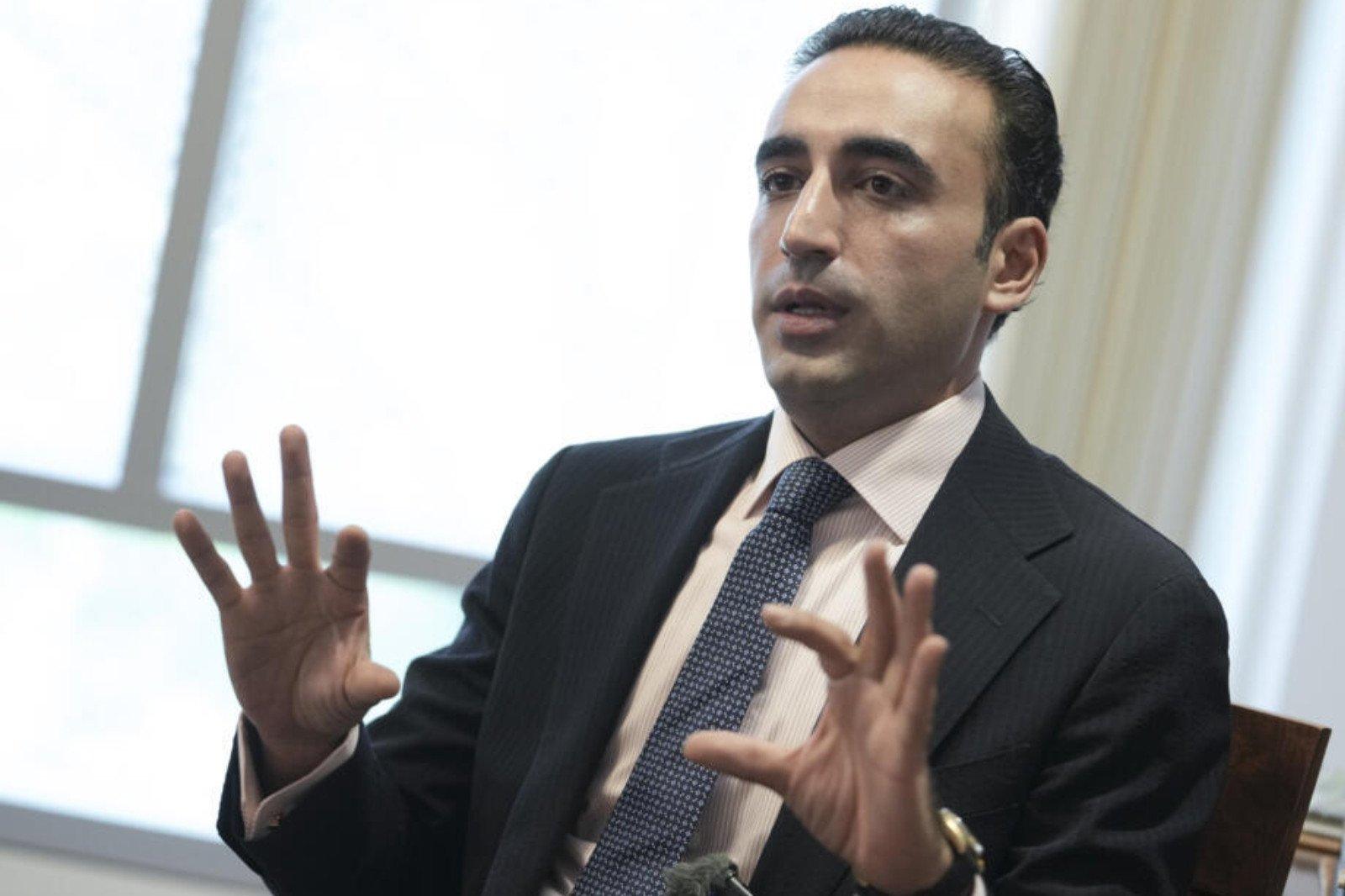The president of the Pakistan Peoples Party (PPP), Bilawal Bhutto Zardari, warned that South Asia is still at risk of a large-scale war despite a cease-fire questioned in the United States between India and Pakistan, calling for supported diplomatic efforts and an international commitment to avoid a new escalation.
Talk to Us News Network NewsmaxBilawal said that a ceasefire between the two nuclear arms neighbors had been made in May with the help of former American president Donald Trump and his team, but warned that peace has remained fragile.
“For the moment, we have reached the ceasefire between India and Pakistan, thanks to the role played by President Trump, his team, secretary Rubio, and that is a great success. The United States deserve credit for this,” he said. “But … we reached the ceasefire, we did not reach peace and we are in fact in a situation in South Asia at this time when we [are] Less safe than us before this conflict. »»
Bilawal, who also chairs the Pakistan parliamentary diplomatic committee, warned that the war threshold between the two rivals had decreased dangerously, in particular in the event of a cross -border terrorist attack.
“If there [is] Any terrorist attack in India or anywhere in India illegally occupied Jammu and Kashmir (Iiojk), it means war between India and Pakistan and it is not sustainable, “he said.
Tensions between the two countries intensified last month following a deadly attack in Pahalgam, Iiojk, in which 26 Indian tourists were killed. On May 7, India launched air strikes on Pakistani soil, which prompted Islamabad to respond with Operation Bunyanum Marsoos. A commercial cease-fire in the United States was reached on May 10, interrupting military action.
Bilawal said the Pakistan agreement at the ceasefire had come after consultations with Washington and was to be considered the start of a broader peace process.
“We did it while communicating with the United States and we will communicate that it would only be the start,” he said, calling for dialogue in a neutral place. “We are working on permanent peace by dialogue and diplomacy … We should discuss all points of friction with India.”
While expressing his confidence in the current will of American leaders to support regional stability, Bilawal has also expressed his concern that the Indian government could sabotage mediation efforts.
“I also suspect that the Indian government will try to sabotage the president’s efforts,” he said. “Just as President Trump played a role in making this ceasefire, we will turn to the United States to encourage their friend and ally India to have a dialogue with Pakistan.”
Given Trump’s influence, Bilawal said the former president had the confidence of the two countries and could bring them back to the negotiating table.
“I think President Trump is the only man at the moment who can cause peace between India and Pakistan,” he said. “I think that his stature, his leadership qualities and his vision supports peace … He is friends with Pakistan, he is friends with India so that he can speak to both of us as an older and try to convince [us] To get along.
He reiterated that cashmere has remained a central question in any future dialogue.
“We must discuss cashmere as a root problem … because if [we] Continue to ignore the cashmere, they will continue to produce the Cannon forger for terrorists to be used in such events. »»
He said that Pakistan was willing to engage on counter-terrorism and recalled prior cooperation in the United States-Pakistan in this area.
“We had done an excellent job by working with them. The only country that the American president thanks[ed]… After being elected president, there was Pakistan for our cooperation. »»
Bilawal has also accused India of “water weapons” by threatening to cut the water supply to Pakistan – an action which, according to him, has violated international standards.
“We are really turning to the international community to add their voice to ours to condemn India’s decision to cut our water,” he said.
On trade, Bilawal said that talks with US officials have gone traditional security problems for economic cooperation.
“We are in fact sitting with Americans speaking of trade rather than terrorism, war and other things,” he said, noting a particular interest in agriculture and mineral investment.
However, he warned that peace was a prerequisite for foreign investment.
“If we have peace in the region, business will progress,” he said. “If assault [is] will continue, if they [are] will continue [to] Support terrorist proxies in Balutchistan … So that will not create a conducive environment even if our commercial discussions are going well, “he added.




